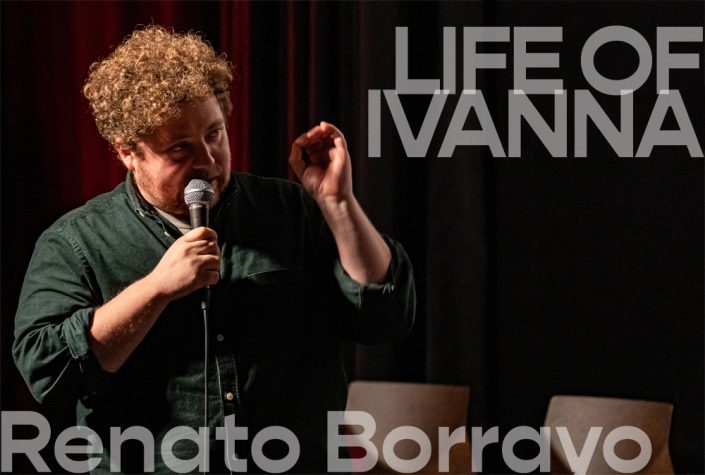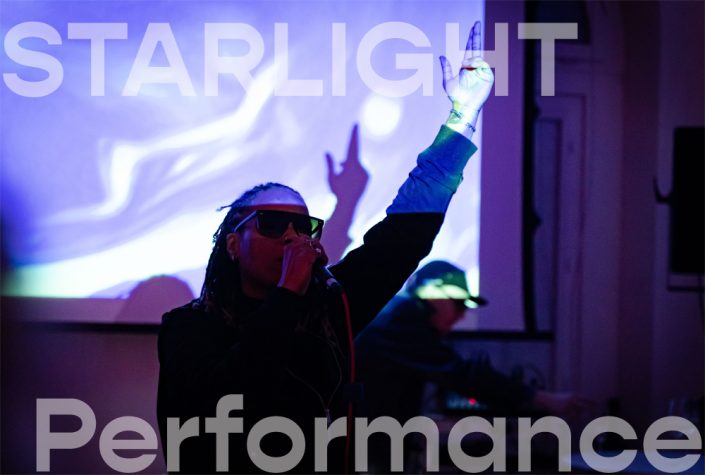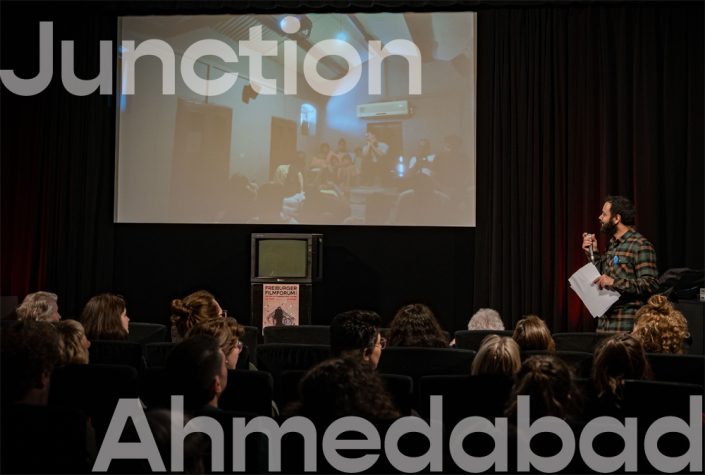In Hungary, people used to co-exist with wolves. But the environmental and political atmosphere drove them out of their territories for nearly 100 years. In the last decade, they have reappeared. BÁRÁN KUTYA ÉS FARKAS shows Csaba and his five dogs as they care for the livestock in the territories in the northern mountains that the wolves have reclaimed.
VICTIMS OF AN ANOMALY
Caused by a dimension anomaly, millions of people have exchanged places with their alter egos from parallel universes. A few years after, the Anomaly Foundation was founded to integrate newcomers into society. In their awareness raising campaign movie four alter egos were interviewed to tell their stories. They confess frankly what they have won and what they have lost after being transposed to this world. - An enthusiastic approach to create something solely character-driven: an absurdistic mockumentary short about our relation to hidden desires and the spectrum of self-acceptance.
Levente Huszka holds an MFA in English Literature from Eötvös Loránd University, Budapest. Currently he works for General Electric as an HR Specialist facilitating Induction trainings, also translating official communication and partaking in simplification projects. He plays at Fórum Társulat’s Improv Theatre as an amateur actor, also working on short film projects at Kultúr Krimó, including HALLOJARAT (interviews with artists of the Hungarian alternative music scene).
DON’T COME HOME THIS YEAR
DON’T COME HOME THIS YEAR is a short film about Romanian migrants returning home from Italy during the Covid-19 pandemic and getting stuck at the Austrian-Hungarian border. The film is mixture of provocative video material: The stranded send out videos about their situation from their smartphones to which migrants who remained in Italy and Romanians at home react by sending back their opinion. The film unfolds a semiotic discourse within the stress field of the pandemic on migrant workers, patriotism and virus transmission. A fast and emotional reflection on a real life fragment of the pandemic and on our use of social media.
Director, editing: Stefan Voicu
Contact: Voicu_Stefan@phd.ceu.edu
in Programme with
DEUTSCHLAND IST EIN TRAMPOLIN
LOST BOY
LUMIERE SHORTS
There are several compilations of the Lumiere brothers’ famous first films in film archives around the world. This version comes from the film archive of the Hungarian Film Institute and contains 13 shorts from the early French programmes and 2 shorts taken in 1896 in Budapest for a set of screenings there.
BUFFALO ON THE ROOF
BUFFALO ON THE ROOF is the name of a six-days festival and camp of Jewish and non-Jewish folkartists in Buffalo-Gap in West Virginia, USA. After its enormous success the year before 1993, it is organized for the second time and documented in a film. The ‘Multicultural Folk Arts Centre’, the famous Klezmer group ‘Brave Old World’ feature amongs other groups from Romania, Poland, Russia and the 1993’s special guest, the Ukrainia. Groups from various other East and West European nations are participating, too. BUFFALO ON THE ROOF, in its celebration of the interrelationship of the Jewish and non-Jewish traditions of Eastern Europe presents an extraordinary opportunity for Jews and non-Jews to explore the riches of their own and each other’s cultures.
HANUKAH IN NEW YORK
Imre lives close to his friend’s sister Eszti who also came from Makó. They meet in London before she and her husband travel to their daughter’s home in New York for Hanukah. There they visit other friends from Makó. In the Orthodox Jewish district of Brooklyn they talk about their past. On the last day of the feast Eszti’s family comes together to light all the candles of the Menora: Hanukah in New York. This documentary is the fourth part of the serial.
IMRE IN ISRAEL
Imre grew up in Makó and is a ‘local boy made good’, a poor immigrant who came to England from Hungary (via Israel) with nothing and who is now a successful businessman. In particular, we join him on a quest to find his boyhood friend, the elusive Josi Markovich who normally lives in New York, but is rumoured to be in Israel. On the way, we meet other Makó Jews and Imre finally finds himself at a gathering of the Makó Jews, when they come together at the Makó Synagogue in B’ne Brak at the end of May to commemorate the death of the last Makó Rabbi. This documentary is the third part of the serial.
Just the Wind
News quickly spreads of the murder of a Romany family in a Hungarian village. The perpetrators have escaped and nobody claims to know who might have committed the crime. For another Romany family living close by, the murder only serves to confirm their latent, carefully repressed fears. Far away in Canada the head of the family decides that his wife, children and their grandfather must join him as soon as possible. Living in fear of the racist terror that surrounds them and feeling abandoned by the silent majority, the family tries to get through the day after the attack. By nightfall, when darkness descends on the village, the family pushes the beds closer together than usual. Yet their hope of escaping the madness proves illusory. Based on an actual series of killings in Hungary that claimed the lives of eight people in less than a year, Bence Fliegauf portrays the pogrom-like atmosphere which breeds such violence. The camera stays hot on the heels of the protagonists, making the breathless escalation of events physically palpable.









